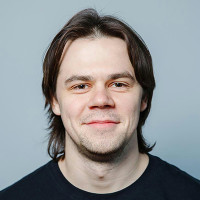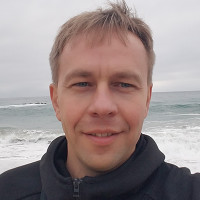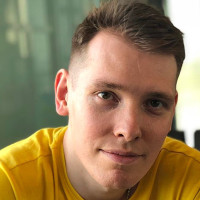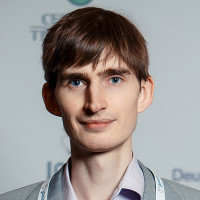Speakers Hydra 2020

Rachid Guerraoui / EPFL

Rachid Guerraoui is a professor in computer science at EPFL where he leads the Laboratory of Distributed Computing. He worked in the past with Ecole des Mines de Paris, CEA Saclay, HP Labs in Palo Alto, and MIT. He has been elected ACM fellow and professor of the College de France. He was awarded a Senior ERC Grant and a Google Focused Award.
Talk(s)

Michael Scott / University of Rochester

Michael L. Scott is the Arthur Gould Yates Professor of Engineering and incoming Chair of the Department of Computer Science at the University of Rochester, in Rochester, NY, USA. A Fellow of the ACM and the IEEE, he is best known for work in synchronization and concurrent data structures, in recognition of which he shared the 2006 SIGACT/SIGOPS Edsger W. Dijkstra Prize. He is the author or co-author of more than 170 refereed publications, including Programming Language Pragmatics (4th ed., Morgan Kauffman, 2016), a textbook in use at more than 200 schools around the world, and Shared Memory Synchronization (Morgan & Claypool, 2013), a standard reference in the field. He received the University of Rochester's Goergen Award for Distinguished Achievement and Artistry in Undergraduate Teaching in 2001 and the Lifetime Achievement Award of the Hajim School of Engineering and Applied Sciences in 2018. His textbook on programming language design and implementation (Programming Language Pragmatics, 4th ed., Morgan Kauffman, 2016) is used at more than 200 universities around the world.
In the java.util.concurrent library, he is a co-inventor of the ConcurrentLinkedQueue, Exchanger, and SynchronousQueue classes.
Talk(s)
Maurice Herlihy / Brown University
Maurice Herlihy has an A.B. in Mathematics from Harvard University, and a Ph.D. in Computer Science from M.I.T. He has served on the faculty of Carnegie Mellon University and the staff of DEC Cambridge Research Lab. He is the recipient of the 2003 Dijkstra Prize in Distributed Computing, the 2004 Gödel Prize in theoretical computer science, the 2008 ISCA influential paper award, the 2012 Edsger W. Dijkstra Prize, and the 2013 Wallace McDowell award. He received a 2012 Fulbright Distinguished Chair in the Natural Sciences and Engineering Lecturing Fellowship, and he is fellow of the ACM, a fellow of the National Academy of Inventors, the National Academy of Engineering, and the National Academy of Arts and Sciences.
Talk(s)

Nir Shavit / MIT

Nir Shavit received B.Sc. and M.Sc. degrees in Computer Science from the Technion - Israel Institute of Technology in 1984 and 1986, and a Ph.D. in Computer Science from the Hebrew University of Jerusalem in 1990. Shavit is a co-author of the book The Art of Multiprocessor Programming. He is a recipient of the 2004 Gödel Prize in theoretical computer science for his work on applying tools from algebraic topology to model shared memory computability and of the 2012 Dijkstra Prize in Distributed Computing for the introduction of Software Transactional Memory. He is a past program chair of the ACM Symposium on Principles of Distributed Computing (PODC) and the ACM Symposium on Parallelism in Algorithms and Architectures (SPAA).
His current research covers techniques for desinging scalable software for multiprocessors, in particular concurrent data structures for multicore machines.
Talk(s)

Dan Alistarh / IST Austria

Dan Alistarh is an Assistant Professor at IST Austria. His research focuses on concurrent data structures and distributed algorithms, and spans from algorithms and lower bounds to practical implementations.
Before IST, Dan was affiliated with ETH Zurich and Microsoft Research, Cambridge, UK. Prior to that, he was a Postdoctoral Associate at MIT CSAIL, working with Prof. Nir Shavit. He received his PhD from the EPFL, under the guidance of Prof. Rachid Guerraoui.
His research is supported through a 2018 ERC Starting Grant.
Talk(s)
Cliff Click / CRATUS
Cliff Click was the CTO of Neurensic (now successfully exited) and CTO and Co-Founder of h2o.ai (formerly 0xdata), a firm dedicated to creating a new way to think about web-scale math and real-time analytics.
He wrote his first compiler when he was 15 (Pascal to TRS Z-80!), although his most famous compiler is the HotSpot Server Compiler (the Sea of Nodes IR). Cliff helped Azul Systems build an 864 core pure-Java mainframe that keeps GC pauses on 500Gb heaps in the micro-second range, and worked on all aspects of that JVM. Before that he worked on HotSpot at Sun, and is at least partially responsible for bringing Java into the mainstream.
Cliff is invited to speak regularly at industry and academic conferences and holds a PhD in Computer Science and more than 20 patents.
Talk(s)
Martin Kleppmann / University of Cambridge
Dr Martin Kleppmann is a researcher in distributed systems at the University of Cambridge, and author of the acclaimed "Designing Data-Intensive Applications" (O'Reilly Media, 2017). He mainly works on collaboration software, CRDTs, and formal verification of distributed algorithms. Previously he was a software engineer and entrepreneur at Internet companies including LinkedIn and Rapportive, where he worked on large-scale data infrastructure.
Talk(s)

Anastasia Braginsky / Yahoo! Research

Dr. Anastasia Braginsky is a member of the Scalable Search Systems Research team, part of Yahoo! Research Lab (part of VerizonMedia), based in Haifa, Israel. Her main research interests span parallel programming and concurrent data structures for multi-core architecture, scalable systems and platforms for big data processing, including scalable key-value stores. She contributes to open source projects (HBase, Oak) and publishes papers in academic conferences and journals. Anastasia received her B.A. (summa cum laude) and PhD (direct track) from the Faculty of Computer Science at Technion, Israel Institute of Technology in 2004 and 2015 respectively. Her PhD is in the field of distributed and parallel computing, and focuses on concurrent, non-blocking data structures and their memory management. Prior to her graduate studies (2002-2009) she was a CAD Tools developer at Intel and later a microcode developer in storage group at IBM Haifa Research Lab (HRL).
Talk(s)
Heidi Howard / University of Cambridge
Dr Heidi Howard is a research fellow based at Cambridge University's Department of Computer Science and Technology. Heidi's research focuses on improving consistency, reliability and performance in distributed systems. Heidi received her BA in Computer Science from Cambridge University in 2014. In 2019, Heidi received her PhD from Cambridge University for her research on distributed consensus. Heidi is probably most widely known for her generalizations of the widely used Paxos algorithm for solving consensus, including her work on Flexible Paxos.
Talk(s)
Sergey Kuksenko / Oracle
Sergey works as Java Performance Engineer at Oracle. His primary goal is making Oracle JVM faster digging into JVM runtime, JIT compilers, class libraries and etc. His favorite area is an interaction of Java with modern hardware.
Talk(s)
Cindy Sridharan
Cindy Sridharan is a distributed systems engineer based out of San Francisco, California. She's the author of a book on Distributed Systems Observability (2018) and an upcoming book on distributed systems in the cloud (2022). She maintains a blog where she writes about building and maintaining reliable systems.
Talk(s)
Lena Hall / Microsoft
Lena Hall is a Director of Engineering at Microsoft. She is leading a team and technical strategy for product improvement efforts across Big Data services at Microsoft, as a part of Cloud Advocacy in Azure Engineering. Lena has more than 10 years of experience in software engineering with a focus on distributed cloud programming, real-time system design, highly scalable and performant systems, big data analysis, data science, functional programming, and machine learning. Previously, she was a senior software engineer at Microsoft Research. She’s co-organizes a conference called ML4ALL, and is often an invited member of program committees for conferences like Kafka Summit, Lambda World, and others. Lena holds a Master’s degree in computer science.
Talk(s)
Anton Podkopaev / MPI-SWS, JetBrains Research, NRU HSE
Anton Podkopaev is a postdoctoral researcher at MPI-SWS, a docent at NRU HSE, and a researcher at JetBrains Research. He did his PhD at St. Petersburg University. Anton's main area of research is weak memory concurrency.
Talk(s)

Maxim Babenko / Yandex

PhD, Associate Professor of Algorithms and Programming Technology at MIPT, head of the Yandex Faculty of Computer Science at HSE.
Teaches the courses "Algorithms and data structures" and "Algorithms in external memory" at the Yandex School of Data Analysis. Creator of the Big Data Infrastructure academic program.
Candidate of Sciences (PhD) in Mathematical Logic, Algebra and Number Theory, Associate Professor of Algorithms and Programming Technology at the Moscow Institute of Physics and Technology, and head of the Yandex Faculty of Computer Science at the Higher School of Economics National Research University. Leads development of the YT platform for distributed computing and data processing at Yandex.
A long-standing organizer of computer science competitions for youth and students. Adept at explaining the most complex subject matter in clear and simple terms.
Talk(s)

Ivan Zemlyansky / PulsePoint

Ivan has over 8 years of experience working with Java and started as a C++ developer. For the last 6 years he has been working with in the field of financial markets, previously worked for Otkritie Broker where he was involved in the development of a risk assessment system. Later he led the infrastructure team at one of the largest hedge funds in the US. Now Ivan is trying himself in a new area of Real-time bidding.
Talk(s)
Alex Petrov
Alex is data infrastructure engineer, database and storage systems enthusiast, Apache Cassandra committer and PMC member, interested in storage, distributed systems and algorithms. Currently writing the Database Internals books with O'Reilly.
Talk(s)

Nail Khusnullin

Nail wrote decision-making systems for the US insurance market and developed applications for training astronauts. Today he's developing a new payment system with a talented team. He also helps to organize .NET meetups in Kazan.

Ed Huang / PingCAP

Co-founder & CTO at PingCAP, a startup focus on distributed storage system and NewSQL database.
Talk(s)

Ruslan Nikolaev / Virginia Tech

Ruslan Nikolaev completed a Ph.D. in Computer Science at Virginia Tech, the USA in 2013. His Ph.D. advisor was Prof. Godmar Back. His Ph.D. dissertation was "Design and Implementation of the VirtuOS Operating System." He published research papers at various conference venues, including SOSP, VEE, PPoPP, PODC, and DISC.
Ruslan Nikolaev previously had Software Engineer internships with Microsoft and VMware, worked full time as a Software Engineer with Microsoft, and as a Senior Software Engineer with Pure Storage.
He presently holds the position of a Research Assistant Professor at Virginia Tech, Electrical, and Computer Engineering Department, where he works at Systems Software Research Group (SSRG), led by Prof. Binoy Ravindran. He currently mentors four Ph.D. students and works on different projects in systems and concurrency.
Talk(s)
Denis Rystsov / Microsoft
Denis Rystsov is a software engineer working at Microsoft on Cosmos DB, globally distributed, multi-model database service. His area of experience lays in testing consistency models, consensus algorithms and distributed transactions. He likes to read CS papers and apply them in practice.
Denis received his MSc in Applied Mathematics and Computer Science from SPbSU. Before joining Microsoft he worked on distributed systems at Yandex and Amazon.
When he's not into research or coding he likes to go surfing, snowboarding or practice other balance-related activities.
Talk(s)

Alex Kogan / Oracle Labs

Alex Kogan is a research scientist at Oracle Labs where he works in the Distributed Systems Group. He is interested in the systems aspects of parallel and distributed computing, optimizing the performance of modern systems through the efficient utilization of available resources. He has experience working with complex systems, such as databases, operating system kernels, machine learning frameworks, and cloud computing services. Prior to Oracle, Alex interned with IBM Research at Haifa, Israel, and Microsoft Research at Redmond, WA. He received his Ph.D. from the Department of Computer Science, Technion, Israel.
Talk(s)
Karthik Ranganathan / Yugabyte
Karthik received his BS and MS in CS from IIT-M and UT Austin. Karthik was one of the original database engineers at Facebook responsible for building distributed databases such as Cassandra and HBase. He is an Apache HBase committer, and also an early contributor to Cassandra, before it was open-sourced by Facebook. He is now a Co-Founder & the CTO at YugaByte, the company behind the open source YugaByte DB project that is bringing together NoSQL and SQL in a single globally distributed database.
Talk(s)
Vadim Tsesko / Odnoklassniki
Currently, lead developer at Odnoklassniki Platform. Joined IT/CS field in 2004 with hydroacoustic systems and research projects on static code analysis. Had been developing high-performance distributed services at Yandex. Verticals for more than 5 years. Occasionally gives lectures on parallel computing and distributed data storage.
Talk(s)

Alberto Sonnino / Facebook Calibra
A co-founder and researcher at chainspace.io, which builds a scalable smart contract platform — now Alberto is a Research Scientist at Facebook Calibra, based in London. His research interests are in distributed systems, blockchains, and privacy enhancing technologies. He has a special interest in cryptography. In the past, Alberto worked on numerical calculations and simulations for physics-related problems (plasma physics, category theory, symmetry groups).
Talk(s)
Oleg Anastasyev / Odnoklassniki
Oleg Anastasyev started his career in computer programming in 1995. He developed banking, telecom, public transportation software as well as software for the government of Latvia. Oleg is a principal engineer at Odnoklassniki (ok.ru). His primary responsibilities are development of architectures and solutions for highly loaded as well as big data services, solving performance and availability problems. His lastest successful projects include NewSQL ACID compliant distributed fault-tolerant database and private cloud system to help manage the whole fleet of Odnoklassniki machines.
Talk(s)
Timur Nasredinov / Odnoklassniki
A "T"-shaped Java developer suffering from imposter syndrome with 15+ years in the industry. Currently employed at Odnoklassniki (ok.ru). Professional experience includes working for outsourcing companies, being a freelance programmer, and developing in an IT giant in such business domains as the medical industry, financial and banking services, and social networks. Takes part in an educational project for Saint Petersburg Polytechnic University as a tutor. Interested in JVM internals, distributed caching, high-performance systems, and concurrency tweaks.

Pedro Ramalhete / Cisco Systems

Pedro Ramalhete has been working in concurrent algorithms for the past 10 years, developing synchronization mechanisms and lock-free and wait-free data structures. He works at Cisco Systems, designing and implementing scalable software. His current research is in Universal Constructions, Software Transactional Memory, Persistent Memory and how to use these tools to let software developers implement correct and scalable failure-resilient applications.
Talk(s)
Aishwarya Ganesan / University of Wisconsin - Madison
Aishwarya Ganesan is a PhD candidate at the University of Wisconsin – Madison. She is broadly interested in distributed systems, storage systems, and operating systems. Her research explores how to build new protocols to improve the reliability of distributed systems without compromising performance. Her research has won best-paper awards at FAST '18 and FAST '20. She was selected for the Rising Stars in EECS ’18 workshop. She is a recipient of a Facebook PhD Fellowship in 2019.
Talk(s)

Gregory Chockler / University of Surrey

Gregory Chockler is a Professor in the Department of Computer Science, University of Surrey. He is affiliated with the Secure Systems Research Group and the Surrey Centre for Cyber Security. Prior to joining University of Surrey in 2020, he was a Professor and the Head of the Centre for Distributed and Global Computing at Royal Holloway, University of London (RHUL) between 2012 – 2019, a Research Staff Member at IBM Research between 2005 – 2012, and a Postdoctoral Associate in the Theory of Distributed Systems group at the Computer Science and Artificial Intelligence Laboratory (CSAIL) between 2003 – 2005. He obtained his PhD in Computer Science from Hebrew University in 2003. Chockler's research interests are broadly in the area of distributed computing and systems spanning both theory and practice. He is involved in a number of projects tackling various challenges arising in these environments including Byzantine consensus, distributed transactions, data replication, data diffusion, coding and caching among others.

Dmitry Bugaychenko / Sber

Graduated from St. Petersburg State University in 2004, got a PhD degree in the field of the formal logical methods in 2007. Spent almost 9 years in outsourcing without losing contact with the university and research community. Big data analysis at Odnoklassniki became for Dmitry an unique chance to combine theoretical knowledge and scientific foundation with the development of real and popular products. And this chance he gladly took advantage of by coming there in 2011. Joined Sberbank team in 2019.
Talk(s)
Vladimir Sitnikov / Netcracker
Vladimir has been working on performance and scalability of NetCracker platform (a software used by telecom operators for automatization of network management processes and network equipment) for ten years. His focus is Java and Oracle Database performance optimisations. Vladimir is an author of more than a dozen of performance improvements in the official PostgreSQL JDBC driver.
Talk(s)
Dmitry Ivanov / Huawei
Former JetBrains Rider technical leader, ReSharper's Core developer: data structures, caches, concurrency. Worked at JetBrains since 2011. Graduated from SPbSU in 2006.
Talk(s)

Ivan Prisyazhnyy / ScyllaDB

Ivan is a software engineer interested in distributed systems, open source, and databases. He came from the background of game development, social networks, and infrastructure projects to help Scylla make its way to the cloud.

Dmitry Tsitelov / Devexperts

Devexperts Senior Researcher, Head of dxLab.
Mikhail Druzhinin / Amazon Web Services
The software development manager in Amazon. 13 years in IT. Java development and architecture trainer in Luxoft Training Center.

Hillel Wayne / Windy Coast Consulting

Hillel is a software consultant in Chicago who specializes in formal methods. He is the author of Learn TLA+ (learntla.com) and Practical TLA+ (Apress, est Dec 2018), is on the Alloy board, and teaches workshops on both of these languages. In his free time, he juggles and makes candy.
Talk(s)
Vsevolod Brekelov / Synthesized
Vsevolod has more than 11 years in IT industry. He tried his hands at different roles and directions. He worked with automated testing, fullstack development in different languages. Some time ago he lived in California and worked under contract at Google. Managed to work with various clients from financial sector. Worked at NEO SPCC startup where he was developing on Go.






































